
Simultaneous translation is not foreseen in the workshops; each workshop will be delivered in the teacher’s language. Of course, it will have the collaboration of a Catalan or Spanish Local Peer.
Curt Gabrielson, director of the Salinas Community Science Workshop (CSW), San Francisco, CA, USA.
Local Peer: Oriol Codina, engineer, permaculturer and educator, director of education at SokoTech, Barcelona.
Hands-on science and math education with simple stuff. Low-tech, high-science activities are still the best window for people to learn about the world through direct experience. The Greenfield Community Science Workshop developed, packed and distributed more than 60,000 kits with these sorts of activities, backed up with bilingual videos, over the course of the pandemic for the mostly immigrant population of the Salinas Valley in central California. Find these materials, watch the videos and be ready to share your experience at the Workshop!
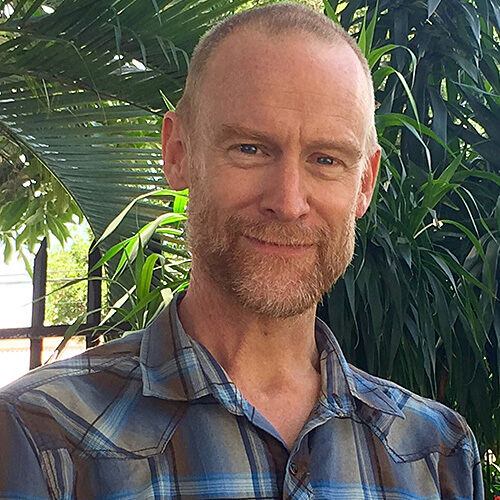
After learning the most useful things in life growing up on a hog farm, Curt learned physics at the Massachusetts Institute of Technology (MIT) and education at the Exploratorium Teacher Institute. He taught science from junk in China, Timor-Leste, India and California. He worked at Mission Science Workshop for 2 years, started and ran the Watsonville CSW for 11, and worked beside José Sánchez at the Greenfield CSW for 2.
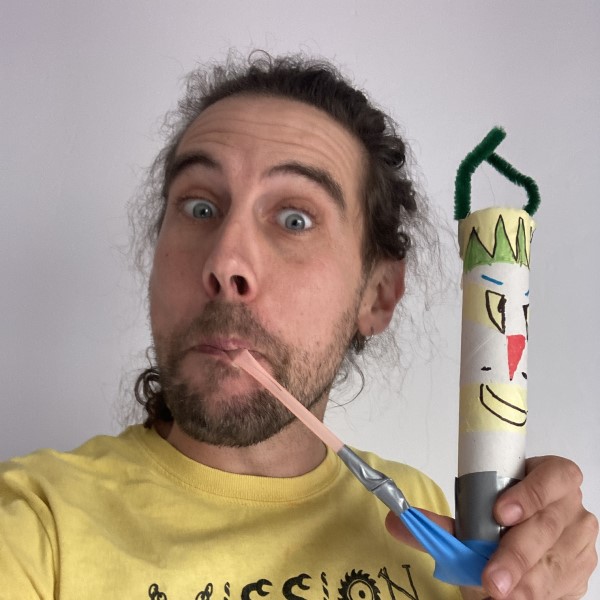
IT engineer, social educator and a permaculture enthusiast. He has more than 4 years of experience in creating and providing science programs for underserved communities in San Francisco, CA. As a Director of Education at SokoTech, he is currently teaching and developing Tinkering programs to teachers from high-need schools in Barcelona. His mission is to give a voice to vulnerable groups and empower them through education and leadership programs. He also advocates for creating healthy places in our communities.
Luigi Anzivino, professional Development Lead for the Exploratorium’s Tinkering Studio, San Francisco, CA, USA.
Local Peer: Sandra Romero López, member of the Magnet Project and of the management team of the Montessori School of Rubí (Barcelona).
In this hands-on workshop we will explore a tinkering activity as learners, to have a direct experience of this approach with easy to find materials. Then we will present how this approach has been adapted and implemented in Early Childhood programs in California, what findings and challenges have emerged so far, and discuss the potential for tinkering at all ages.
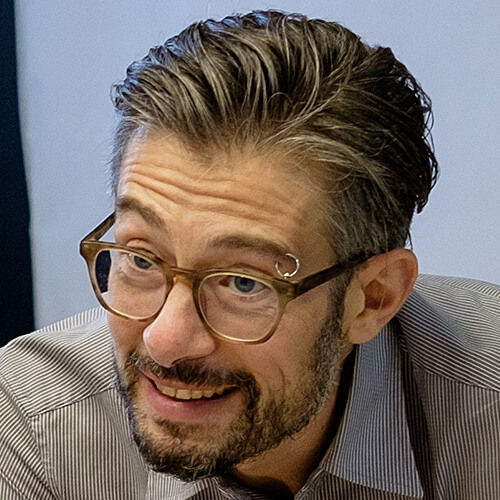
He is the Professional Development Lead for the Exploratorium’s Tinkering Studio. Also a former neuroscientist, a magician, and a survivor of academia. He focuses on developing, documenting, and sharing with others in the field rich learning experiences, with the goal of creating a physical, cultural, and social space that is safe for trying out tentative ideas, not knowing the right answer, and developing the skill of posing—even more than solving—interesting problems.
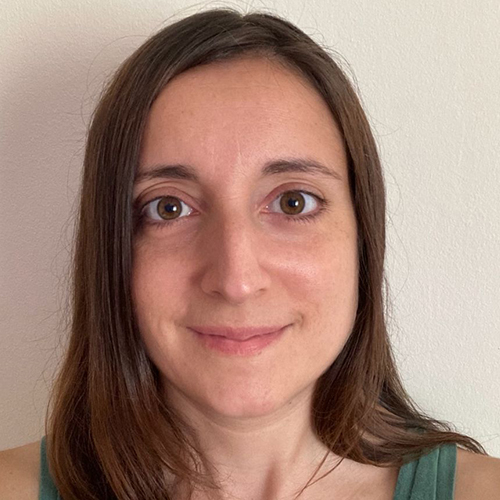
She has a degree in English / French-Spanish Translation and Interpretation from the Autonomous University of Barcelona (UAB) and is a specialist teacher in Foreign Language from the University of Barcelona (UB). She holds a Teaching Certificate. She has specialized in language learning using globalized methodologies. Convinced of the importance of transversality in education, she works to implement and promote STEAM vocations in educational center workshops. She is part of the management team of the Montessori School of Rubí and member of the Magnet Project, projecting Tinkering in the day to day of schools.
Nancy Otero, director of Learning / Founder and CEO Kitco, San Francisco, CA, USA.
Local Peer: Mariona Cìller, co-founder and creative director of SokoTech, director and curator of STEAMConf, Barcelona.
Through this workshop we’ll explore how we can design programs, activities, and environments that go beyond technological powered projects. We’ll design meaningful experiences that make learners active creators of their reality and personal narratives. Our central case is how making was used during the Covid crisis, and what have we learned from those examples. Additional cases will also be provided.
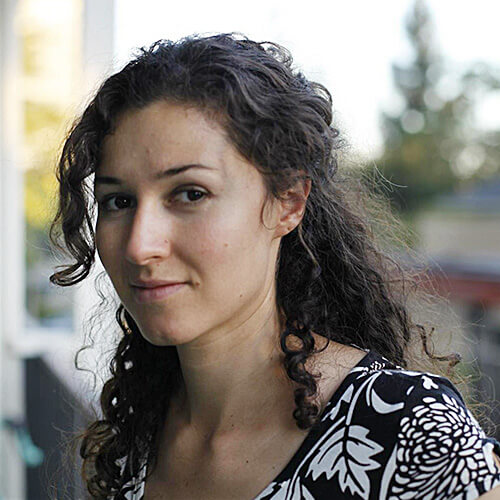
Nancy’s biggest passion is human learning, she has spent the last fifteen years working with educational organizations designing environments that mix technology with project-based learning. Nancy was the Founding Director of Learning Design at Portfolio School, a project-based learning school in NYC. Students from this program are the youngest presenters -6, 8, and 9 years old- at Stanford’s conference FabLearn. She was the Director of Professional Development at the Beam Center in NYC, where she created a program that served more than one hundred teachers and thousands of students. She co-founded FAB!, a non-profit in Mexico that works with underserved communities for 5 years. Nancy was a OpenAI fellow, and a software engineer in her previous life. She has a Master in Learning, Design and Technology from Stanford University.
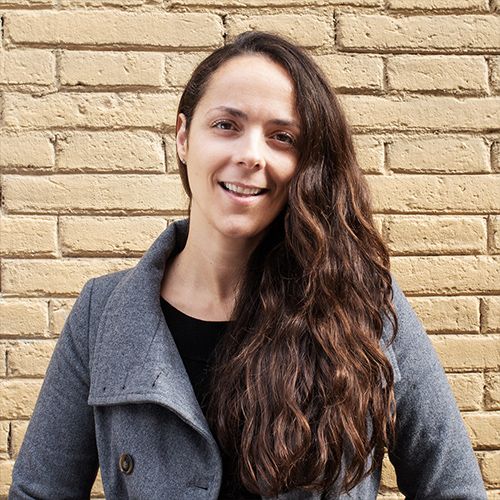
Graduated cum laude from the University of Illinois with a double major in Fine Arts (B.F.A.) in Visual Communication and Art History disciplines. Master of Science (M.Sc), Mass Media & Management Studies, and Assistant Professor at the same university teaching classes on free software tools and open culture. Her thesis Free Culture Project, which fuses the potential of technology with the transforming power of education, is a turning point in her career towards territories of reinvention of the world of teaching and learning hand in hand with emerging technologies. Postgraduate in Design Research & Management Educational Evaluation and Research from the Higher Institute of Education and Sciences of Lisbon (ISEC), she has a diploma in digital fabrication and electronics from the Fab Academy (CBA- MIT) and currently is a PhD student in Computer Sciences & Human Computer Interaction at Pompeu Fabra University (UPF).
In 2015, she co-founded SokoTech, a digital social innovation laboratory, bringing together an intersectoral team of experts in the conception and production of projects on the arts, science, and technology frontier.
Jie Qi, multi-disciplinary designer, inventor, co-founder and CEO of Chibitronics, Florida, FL, USA; Natalie Freed, Education Team Member Chibitronics, Austin, TX, USA.
Local Peer: Patricia Santos, researcher and Project Manager, member of the Research Group of Interactive and Distributed Technologies for Education (TIDE- UPF), Barcelona.
Paper Circuitry is a fun and friendly medium that blends the art of paper craft with the interactive power of circuits and code. In this hands-on workshop, we will work together to create light-up circuits, create DIY sensors and turn these into interactive artworks. No prior experience in electronics or art needed, we will begin at the beginning!
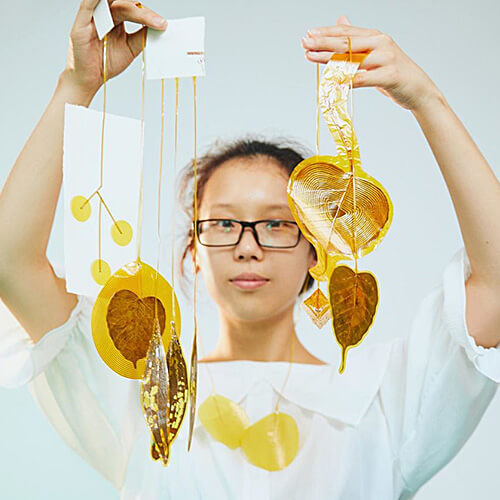
Co-founded in 2014 Chibitronics, a company that produces creative learning toolkits. Her mission is to combine art with engineering to empower creators of all backgrounds to make their own expressive and personally meaningful technologies. A 2017 fellow of the Berkman Klein Center for Internet and Society at the Harvard University Law school, Jie created PatentPandas.org, a resource to teach patent law through friendly panda comics, share real life inventors’ stories and connect independent creators to free legal counsel. Jie holds a B.S. in mechanical engineering from Columbia University and an M.S. and Ph.D. in media arts and sciences from the MIT Media Lab, where she was a member of the Responsive Environments, High-Low Tech and Lifelong Kindergarten groups. Jie has exhibited internationally, including at the Museum of Modern Art, Exploratorium Museum, Ars Electronica, Boston Museum of Fine Arts, MIT Museum, and Shenzhen Design Society. Her work has been featured on WIRED, Fast Company, Huffington Post, Scientific American, The Atlantic, the Financial Times and the New York Times. She has given invited talks and workshops across diverse venues including MIT, Harvard, Rhode Island School of Design, NYU, LEGO, Google, Microsoft, and the White House Office of Science and Technology Policy.
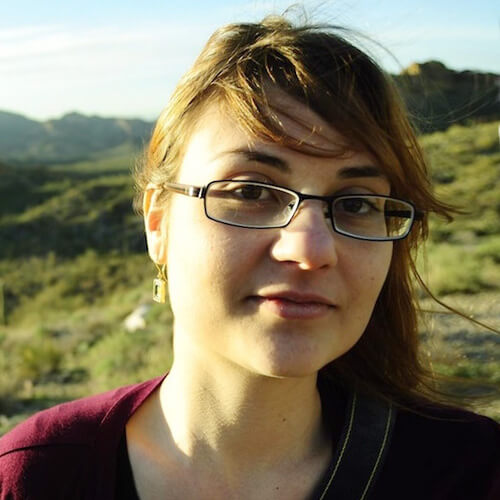
A STEAM Education doctoral student at the University of Texas, Austin, is part of the Chibitronics Education Team. She holds a B.S. and M.S. in Computer Science from Arizona State University and a M.S. from the MIT Media Lab. She has worked as an exhibit developer, taught high school computer science, and has led workshops on paper circuits, the mathematics of bookbinding, and other intersections of tech and craft.
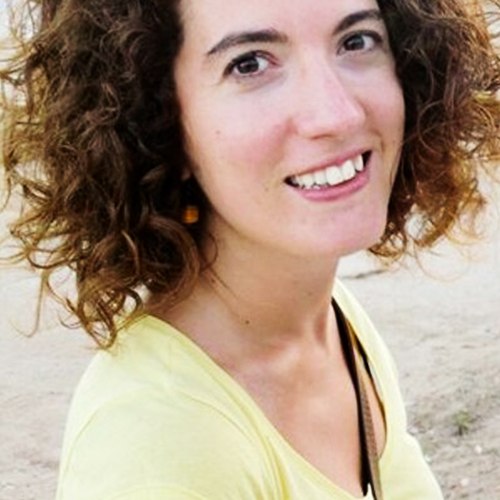
Researcher and Project Manager Interactive and member of the Research Group of Interactive and Distributed Technologies for Education (TIDE- UPF). Throughout her professional career, the quality and innovativeness of her work has been recognized with many awards and publications. She has consistently positioned her research in the field of Technology-Enhanced Learning with a focus on Human Computer Interaction and Learning Design. In 2011, she obtained her PhD with an Excellent Summa Cum Laude (Best Phd Thesis Award – Potential for transference, UPF Board of Trustees). From 2013 to 2016 she was a full-time post-doc researcher, at the University of the West of England (UK). Her research career has been developed in the context of competitive and multidisciplinary international research projects. She has publications with 77 international researchers. She has worked in R+D+I projects with academic and industry partners across different countries in Europe (Germany, UK, France, Italy, Netherlands, Greece, Austria, Belgium, Norway, Finland, Romania, Denmark, Cyprus, Bulgaria, Lithuania, Estonia, Portugal ) and other countries such as Chile and Israel. Since 2017, she is a senior member of the Interactive and Distributed Technologies for Education (UPF). She has been involved in the design and development of diverse learning technologies, main ones are: Questinsitu, an authoring tool and mobile app designed and built to support assessment in situ activities; ILDE+ Makers a les Aules, a Learning Design community platform to support Maker activities; Empatheia, an online game to support Design Thinking in primary schools; and Soele, a SEL learning design evaluation tool.
José Luis Touron, head of the Science and Technology Area of the Virolai School, Barcelona.
We will discover the enormous educational potential that drones have for learning mathematics and programming, but also the possibilities that their use offers us to learn to work in a coordinated and collaborative way to achieve a goal. Technologies that were unthinkable to use in schools a few years ago as didactic tools are now within our reach, drones are an example and we will use them to introduce vector math concepts while we learn programming languages such as Python or Scratch. Proposing missions as challenges that drones must overcome, students explore concepts of navigation, spatial coordinates, angles, speeds, accelerations, graphical representation and data visualization. The drone camera will also allow us to introduce artificial intelligence and image processing concepts.
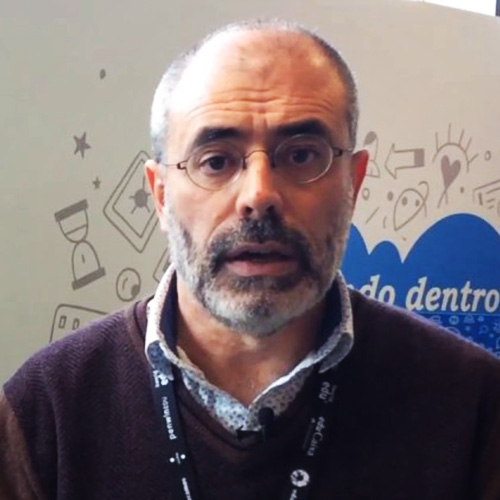
Participates in the educational transformation process that is being experienced in Catalonia. He has recently participated in the European projects DIYLab and Collaborative Design for Smart Pupils, which aimed to incorporate STEAM content with a cooperative work method. At school he works in interdisciplinary teams applying a project-based learning methodology.
Núria Salán, professor in the Department of Materials Science and Metallurgical Engineering at ESEIAAT, UPC-Terrassa (Barcelona); Manuel Barrios, director and producer of programs at the Catalan Audiovisual Media Corporation (CCMA), Barcelona.
We will use the drawing tool of the television show “Una mà de contes” (Super3 CCMA) to show how small kids can make their own story about women and STEAM or about how they see themselves as inventors.
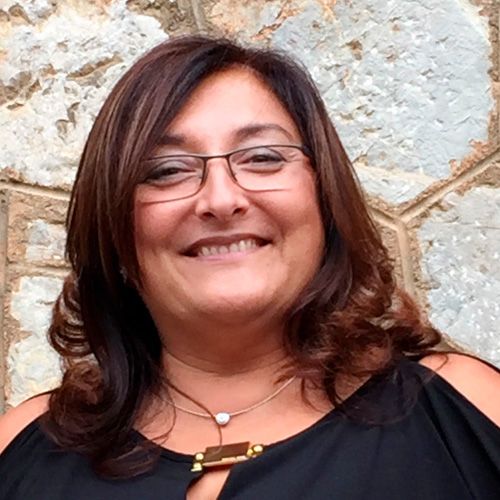
Graduated in Chemical Sciences and PhD in Materials Science and Metallurgical Engineering, she has been linked to the UPC since 1991 as a researcher and as a professor in the Department of Materials Science and Metallurgical Engineering at ESEIAAT. As a researcher, she has participated in more than 20 R&D projects and in 5 Teaching Innovation projects. Author and co-author of scientific-technical documents and a fiction novel, she has received various recognitions throughout her career, such as the First Prize for Innovation in Teaching Quality in various calls and the Vicens Vives distinction from the Government of Catalonia. She is currently collaborating in the mentoring program for girls at the UPC, M2M, and is Deputy Director of Institutional Promotion and Students at ESEIAAT. She is also president of the Catalan Society of Technology.
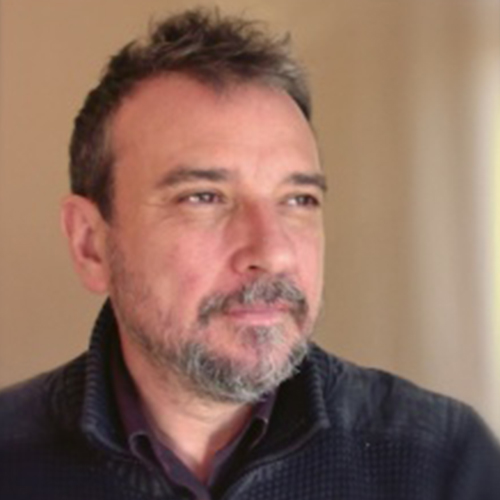
Graduated in Fine Arts (Image speciality) from the University of Barcelona and PhD from the UB and UAB, he is producer and director at Television of Catalonia and member of the founding team of the Professional Council of Programs of the CCMA. Manuel has been Curator of exhibitions, like the international “FORBID Catalan cinema under Franco”; speaker at the Conference for the learning and teaching of mathematics; coordinator of the Education and Media working group of the Educational Project of the City of Hospitalet; coordinator of the summer course by the Rosa Sensat Teachers Association and coordinator of the MNAC’s lecture titled “Audiovisual and Narration as an instrument of learning and interpretation of Art and its application in the school”. He has also been an invited artist by the Pla Educatiu d ‘Entorn of the Department of Education of the Generalitat of Catalonia. He is Director of the Documentary and Society Master of the Escola Superior de Cinema i Audiovisuals de Catalunya as well as Professor of the Faculty of Fine Arts of the University of Barcelona.
Simultaneous translation is not foreseen in the workshops; each workshop will be delivered in the teacher’s language. Of course, it will have the collaboration of a Catalan or Spanish Local Peer.
Josep Ferràndiz, Center for Specific Pedagogical Resources for Support to Innovation and Educational Research (CESIRE), Department of Education of the Generalitat de Catalunya, Barcelona; Joan Guillén Center for Specific Pedagogical Resources for Support to Innovation and Educational Research (CESIRE), Department of Education of the Generalitat de Catalunya, Barcelona.
Snap! is a visual and dynamic programming language that combines a friendly and easy-to-initiate environment for young and old people, it uses a platform that allows you to tackle a serious study of computer science. The project Creative Learning with Snap! wants to be an introduction to programming from the paradigm of creative learning and from practice (learning by doing). Programming is a tool of the computer world that, in addition to providing us with learning about computational thinking, allows us to address any project that uses the digital world from a creative, experimental, cooperative point of view, free and critical. In this workshop we will present self-training materials, the project called “Creative Learning with Snap! in Context” and we will carry out dynamic projects that will play with digital sound and image.
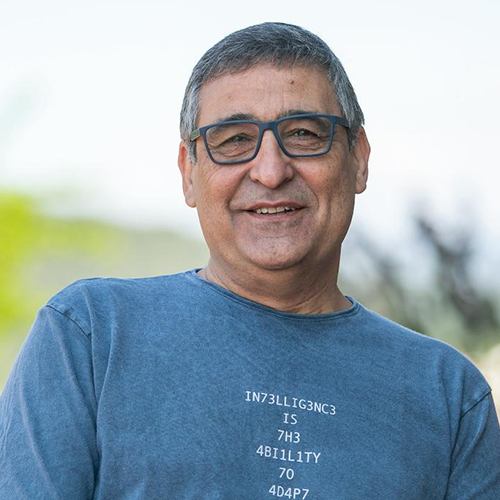
He studied at the Sant Cugat School of Teachers and later Computer Science at the School of Engineers (Campus Sabadell) of the Autonomous University of Barcelona (UAB). He worked as a teacher until 1996 and after that as a high school technology teacher. He is currently assigned to the CESIRE (Center for Specific Pedagogical Resources for Support to Innovation and Educational Research) of Department of Education of the Generalitat de Catalunya.
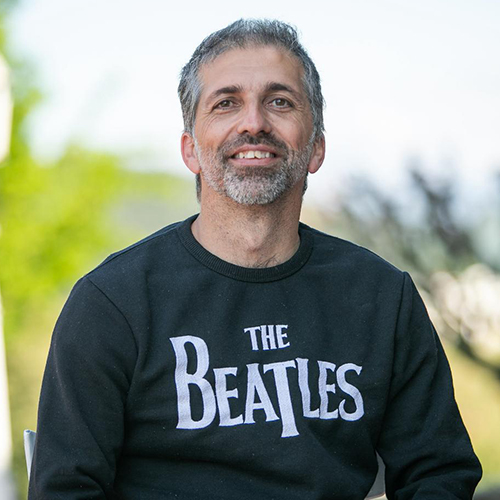
Since 1999 he has been working as a technology teacher in secondary education and, at present, he is assigned to the CESIRE, (Center for Specific Pedagogical Resources for Support to Innovation and Educational Research) of the Department of Education of the Generalitat of Catalonia. For years he has been involved in the development of educational telematic environments (Zikula CMS intranet project, Moodle environment). Since 2016 he has been part of the Snap4Arduino team, promoting the teaching of computer science, programming and robotics. He is a Snap4Arduino developer and part of the team of Snap!
Bernat Romagosa, software engineer at Young Thinkers SAP, Sant Feliu de Llobregat (Barcelona).
MicroBlocks is an interactive programming language for microcontrollers, designed and developed by the creators of Scratch, Snap! and Snap4Arduino. MicroBlocks allows graphical, interactive and parallel programming, with the addition that the programs work autonomously within the board, without the need to be connected to the computer. MicroBlocks thus offers the flexibility and interactivity of dynamic block programming, without giving up the construction of projects with real-world applications. One of the boards that we can program with MicroBlocks is micro: bit, and in this workshop we will explore the possibilities offered by the conjunction of this microcontroller with this language.
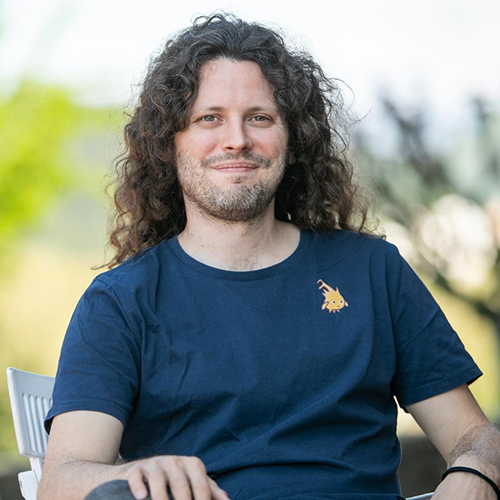
He is a software engineer from Sant Feliu de Llobregat. He works within SAP’s Young Thinkers group, where he is in charge of developing softwares as a member of the Snap! and MicroBlocks teams. He was also the author of Snap4Arduino and lead developer of Beetle Blocks. Previously, he has worked for the Cornellà Citilab, for Arduino.org and as a freelancer for the University of Berkeley in the framework of the project The Beauty and Joy of Computing.
Luis Carlos Pardo, professor at the Universitat Politècnica de Catalunya (UPC-BarcelonaTech) at the Besòs campus (EEBE), Barcelona.
Mobile phones allow us to carry out experiments that were previously reserved for research laboratories. In this session you will learn how to use your mobile to analyze the trajectory of different objects using the camera on your phone. Specifically, the first experiment that we will do will allow us to measure both the static and dynamic coefficient of friction between two surfaces with this zero budget experiment, using a mobile phone as a measurement tool. If we feel like it and we have time, we will do a second experiment in simple harmonic motion, again with materials as accessible as a canteen and elastic bands.
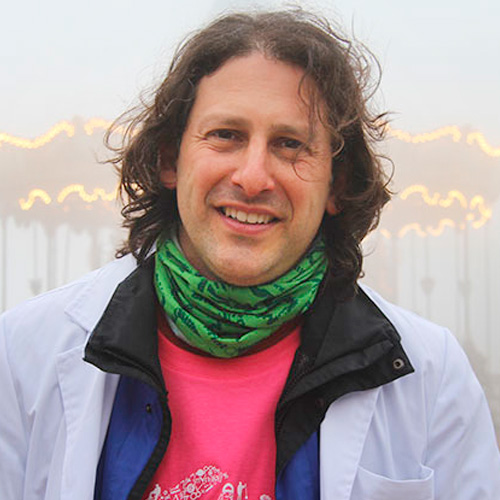
Researcher of the Materials Characterization Research Group, he communicates his passion for research and science to younger people through various STEAM projects, such as FISIDABO, in which the students carry out physics experiments on the Tibidabo attractions using the mobile phone, or VISIONS, in which dance, physics, music or chemistry are mixed over two STEAM days at the Forum and the Lluís Companys Olympic Stadium.
Oriol Codina, Director of Education at SokoTech, Barcelona.
The activity proposed for this workshop is to make a simple motion sculpture using everyday materials to tinker about storytelling and mechanical motion. This tiny version of automata is powered by a simple crank slider mechanism which provides simple motion. This is a special activity for teachers and families to raise awareness about the importance of reusing and recycling materials to create meaningful toys. Automatas are handmade kinetic sculptures made of simple and / or recycled materials that allow students to embrace design thinking and foster a growth mindset, creativity, innovation and problem-solving.

IT engineer, social educator and a permaculture enthusiast. He has more than 4 years of experience in creating and providing science programs for underserved communities in San Francisco, CA. As a Director of Education at SokoTech, he is currently teaching and developing Tinkering programs to teachers from high-need schools in Barcelona. His mission is to give a voice to vulnerable groups and empower them through education and leadership programs. He also advocates for creating healthy places in our communities.
Montserrat Segarra, is a teacher and speech therapist of the Educational Services (CREDA) of the Department of Education of the Generalitat de Catalunya, Barcelona.
Rosa Torras, is a Mindfulness teacher, therapist and Coach, Barcelona.
Attention is an impressive educational challenge. In the post-pandemic scenario, teachers are perceiving an increase in conflict, hyperactivity, distraction and insecurity. In the line of reflection of STEAM Conf 2021, we present Mindfulness as a complete tool for improving the well-being of teachers, children, young people and families. The competencies proposed by the SEL (Social Emotional Learning) can be integrated with the bases of Mindfulness to promote in the educational community the values of kindness, kindness and compassion. In the workshop we will live, from experience, how to create moments of calm and stillness. We will observe how external stimuli “capture” our attention and we will see how not to identify with them. The purpose is to share and discover together an open and conscious way of being and doing in school.
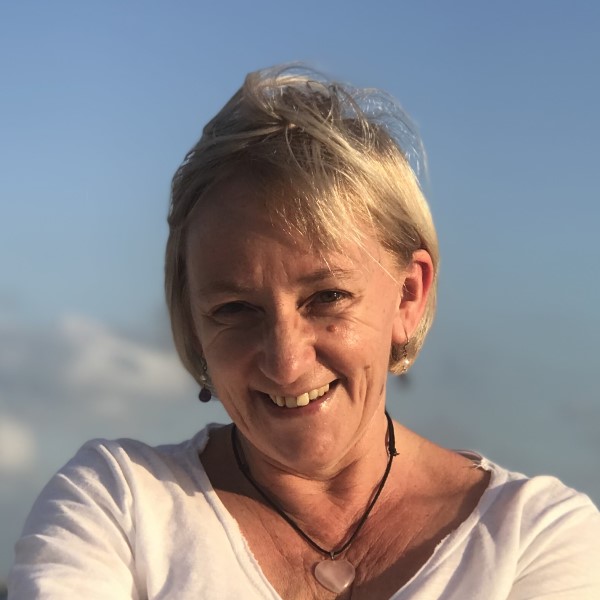
She has experience in attending to diversity and in stimulating communication, language and speech within the educational environment with families and teachers. Master in Education and ICT from the Open University of Catalonia (UOC). Member of the Educational Perspective Group of Work Projects (Pepto). She worked for Child Care Algoma (Ontario, Canada). Montse has training in the MBSR (Mindfulness Based Stress Reduction) and Advanced Mindfulness program. A Higher University Degree in Mindfulness and Emotional Management from the European Institute of Positive Psychology, certified in specific Mindfulness and well-being programs for children: Triple P-Positive Parenting Program of the University of Queensland in Australia, TREGUA Program (Experiential Relaxation Techniques Applied in the Classroom) of the University of Barcelona and the Still Quiet Place Program by Dr. Amy Saltzman, founder and director of the Association for Mindfulness in Education.
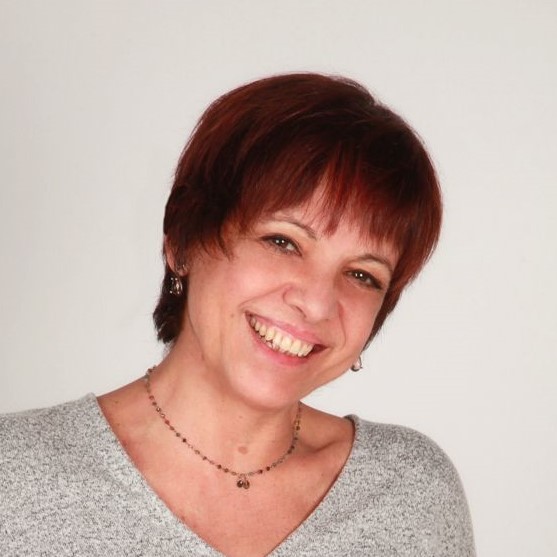
Chemical Engineer, graduated in Naturopathy and Cognitive Homeopathy. Accredited instructor of the MBSR (Mindfulness for Stress Reduction) program. Member of the Professional Association of Mindfulness Instructors. Diploma in the Mindfulness Program and addictions MBAR. Advanced level in the MBPM Mindfulness Program for Health and Compassion of Respira Vida Breathwork. Certificate in the Advanced Mindfulness Program The Power of Presence taught by Eckhart Tolle. Higher University Degree in Mindfulness and Emotional Management from the Institute European Positive Psychology. Creator of the Mindfulness program and Meditation for inmates in prisons in Catalonia.